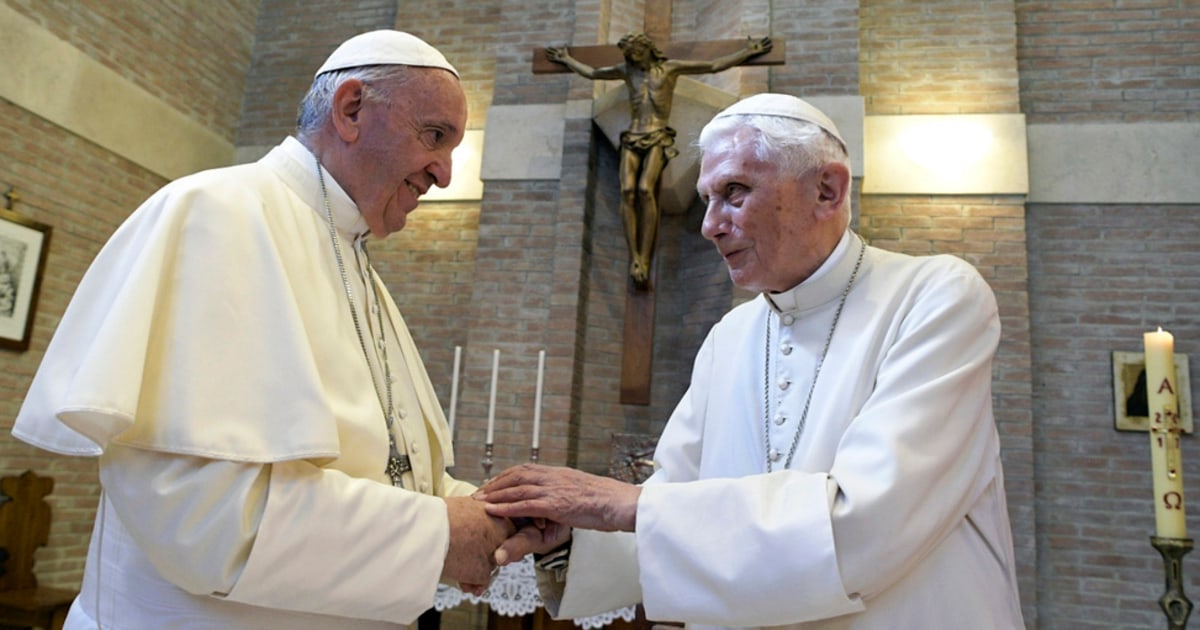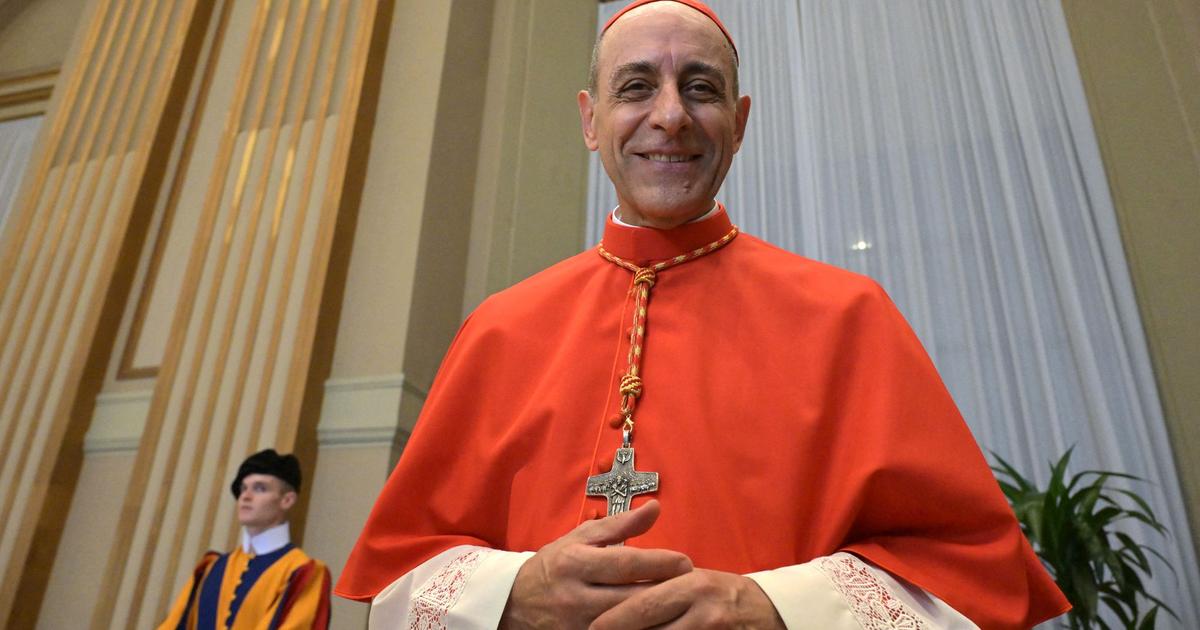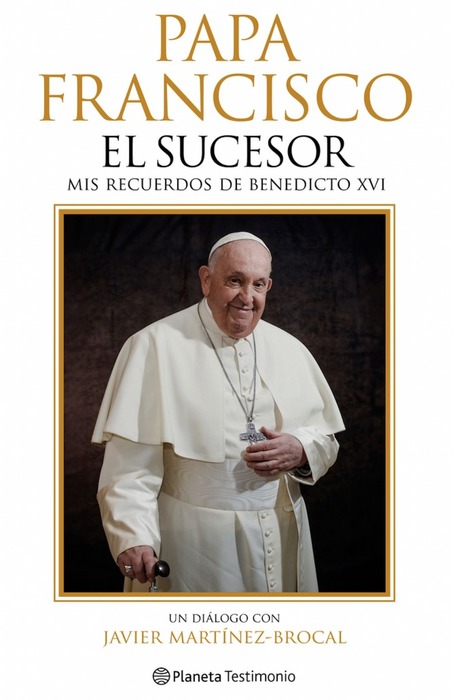Pope Francis has been the 13th Bishop of Rome since March 2013, 266. As the head of the Catholic Church, the Pontifex Maximus is also called the "Holy Father". A look at its predecessors of the 20th and 21st centuries.
1 / 12Leo XIII (1810 to 1903) was the 256th director from 1878 until his death in 1903. Pope of the Roman Catholic Church. On the one hand, Leo XIII (born Vincenzo Pecci) oriented himself towards the high medieval order of church and state, and on the other hand, he upgraded Catholic social doctrine with the first social encyclical. Because of his involvement in social issues, he became known as the "Workers' Pope" and "the Socialist". His goal was to lead the Church out of its isolation from social and political developments, but he was convinced of the necessity of a "temporal power" (Papal States) of the Pope. © Imago2 / 12He was succeeded by Pius X (1835 to 1914). He was born Giuseppe Sarto in Riese, which at that time belonged to the Kingdom of Lombardy Veneto. Pius X is often referred to as the "conservative reform pope" because he sought reform and renewal within the Church in order to strengthen the Catholic Church in the fight against the influences of modernity. He was beatified in 1951 and canonized in 1954. Since then, his relics have been in a glass reliquary in St. Peter's Basilica, the head is covered with a metallic wrapping. © imago3 / 12Benedict XV (1854 to 1922) was Pope from 3 September 1914 until his death in 1922. His pontificate was marked by the First World War. In his peace note "Dès le début" on the third anniversary of the start of the war, he proposed peace negotiations to all warring powers as a neutral mediator. He called for disarmament, effective international arbitration to prevent future wars, and the renunciation of territorial cessions. Because of his committed demeanor, he became known as the "Pope of Peace". © Imago4 / 12The pontificate of Pius XI (1857 to 1939) was marked by difficult times. Pius XI (real name Achille Ratti) condemned "social modernism" and developed positive guidelines for a peaceful social order based on the Catholic religion. The most important concordats are the Lateran Pacts and the Reich Concordat with the German Reich (10 September 1933). Although the encyclical "Mit brennender Sorge" (With Burning Concern), published in 1937, condemned National Socialist ideology, it did not address the persecution of Jews and other minorities. © imago5 / 12His successor Pius XII (1876 to 1958) prepared the final version of the encyclical "With Burning Concern", which appeared on March 21, 1937. At the beginning of his pontificate, Pius XII, whose real name was Eugenio Pacelli, proposed a European five-power conference to settle the conflicts. Because of his previous passivity, none of the governments addressed reacted positively to this. Pius XII adhered to political neutrality and left open which side would be on which side law and morality would stand in the event of war. Like Benedict XV in the First World War, Pius XII published general appeals for peace during World War II, avoiding blame and not naming any warring party. © imago6 / 12John XXIII (1881 to 1963) was described in the press as a transitional pope and compromise solution after his election on October 28, 1958 due to his advanced age and conservative piety, but soon proved to be a courageous reform pope. Because of his modesty and closeness to the people, John XXIII (burgeanAngelo Roncalli) is popularly known as "The Good Pope". He was beatified on September 3, 2000 and canonized on April 27, 2014. His feast day in the Roman Catholic Church is October 11, the day of the opening of the Second Vatican Council in 1962. © imago 7 / 12However, Paul VI (1897 to 1978) is considered by some to be the actual "Pope of the Council" because of his formative role, his decision-making and the implementation of decisions. None of his predecessors ever enforced such comprehensive ecclesiastical legislation as Paul VI (born Giovanni Montini). The encyclical "Humanae vitae" of 1968, in which Paul VI rejected the use of artificial contraceptives as "always illicit", is controversial. Mockingly, he was therefore also called "Pillen-Paul". Paul VI was beatified on October 19, 2014 and canonized on October 14, 2018. © imago8 / 121978 went down in history as the Year of the Three Popes. Paul VI was succeeded by John Paul I (1912 to 1978). After a pontificate of only 33 days, John Paul I died on the night of September 28-29, 1978. Albino Luciani, who came from a poor background, was buried in the crypt of St. Peter's Basilica. An autopsy of his body was denied by both his family and the Vatican. His death quickly gave rise to numerous conspiracy theories. In Italy, he is remembered as the "Pope of Smiles" and "The Smile of God". John Paul I was beatified on September 4, 2022. © Imago
0
Also Read
Kakhovka dam blown up: experts express new suspicions
READ
Putin "extremely irritable": Details of the information bubble around Russia's president apparently leak out
READ
Russia's silent super-submarines – Putin apparently sends his "black holes" into the Pacific
READ
Traffic light agreed: New heating law will probably come before the summer break
READ
"The Pope needs our prayers": concern for Francis because of emergency surgery
READ
Fancy a voyage of discovery?
9 / 12On October 16, 1978, John Paul II (1920 to 2005) was elected the 264th Pope. His pontificate lasted 26 years and 5 months. Karol Wojtyła was born on 18 May 1920 in Wadowice. He was the first Pole to the papal throne and the first non-Italian in 456 years. He is credited with playing a decisive role in ending socialism in his homeland. John Paul II increasingly sought publicity, did not shy away from the mass media and was occasionally called the "media pope". John Paul II was beatified on May 1, 2011 and canonized on April 27, 2014. © Knut Falch/imago10 / 12Benedict XVI (1927 to 2022) was the second pope in history to voluntarily resign from office. During his term of office, Benedict (real name Joseph Ratzinger) advocated a return to basic Christian values in order to counteract the increasing secularization of many Western countries. In May 2006, he made a pilgrimage to Poland, where he also visited the Auschwitz-Birkenau Memorial. Benedict XVI was controversial because of his handling of sexual abuse cases, although he introduced strict rules for dealing with perpetrators and placed over 500 priests in the lay state in the second half of his pontificate alone. © imago11 / 12After Benedict XVI announced his resignation on 11 February 2013 before the cardinals on 28 February 2013, he was replaced as head of the Church by Pope Francis on 13 March 2013 and moved as Pope Emeritus to the Vatican monastery Mater Ecclesiae on 2 May 2013. Benedict XVI was a member of several social science academies. He played the piano and had a penchant for classical music by Mozart and Bach. On September 2, 2020, Benedict replaced Leo XIII as the oldest pope in history. © L'Osservatore Romano/dpa12 / 12Francis (born 1936 in Buenos Aires) has been the 13th Bishop of Rome since 2013 March 266, making him Pope, head of the Roman Catholic Church and sovereign of the Vatican State. Jorge Mario Bergoglio chose Francis as his papal name in honor of Saint Francis of Assisi. As an Argentine, he is the first non-European to hold the papacy since Gregory III, who reigned in the 8th century. He is also the first pope to belong to the Jesuit order. Francis is known for his humility, his emphasis on God's mercy, his international visibility as Pope, his concern for the poor, and his commitment to interreligious dialogue. Francis adheres to the Church's views on abortion, celibacy and women's ordination, but has initiated a dialogue on the possibility of deaconesses. He also supports a possible opening of the Roman Catholic Church to members of the LGBT community. Francis is a critic of capitalism and economic liberalism. At the same time, he advocates measures against global warming. During the European and Central American migrant crises, he supported the cause of refugees. © imago















